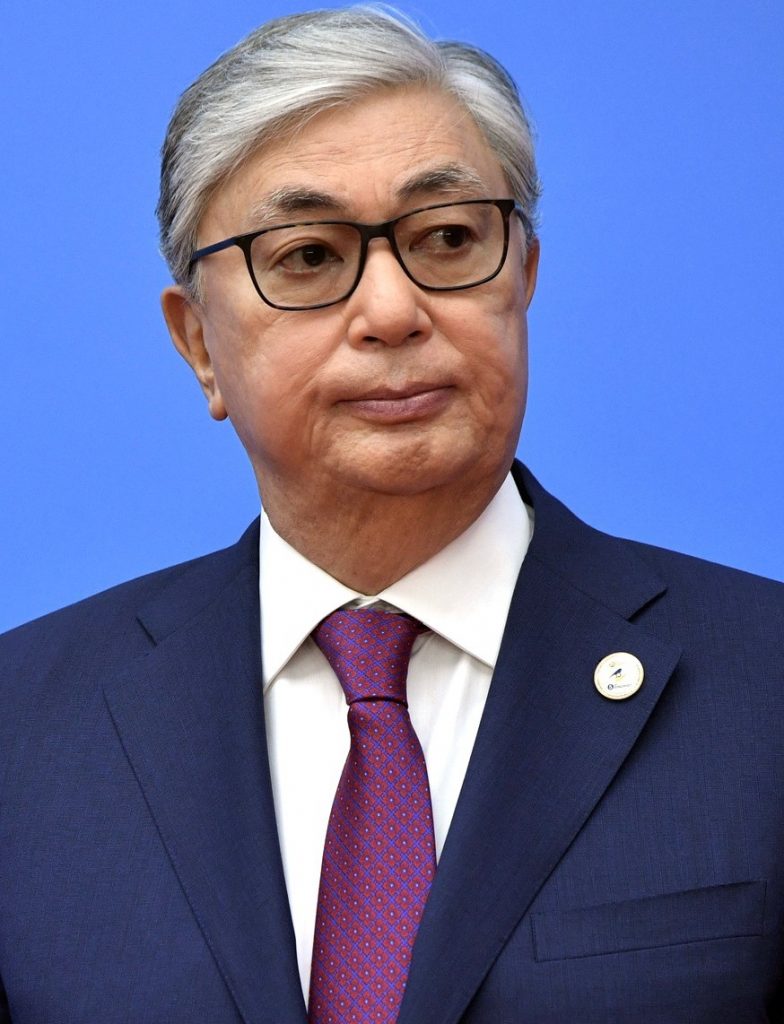
Kassym-Jomart Tokayev
The Central Asian nation of Kazakhstan on Sunday will hold an early presidential election to choose the successor to Nursultan Nazarbayev, the country’s one and only post-Cold War leader, who stepped down from power in March of this year. According to the constitution, he was succeeded by the former speaker of the upper house of Parliament, Kassym-Jomart Tokayev, the former prime minister and foreign minister.
Despite the doubters out there, this is a historic opportunity for the Kazakh people and the region.
For the United States, stability and prosperity of Kazakhstan are crucially important, as the country sits in the heart of Eurasia, between China and Russia, and is a significant provider of oil and uranium to global markets. It has excellent relations with Washington.
The 78-year-old Mr. Nazarbayev introduced many badly needed economic and political reforms, and was the last Soviet-era leader still ruling in any former republic of the long-gone USSR.
Nur-Sultan — the new name for the capital city formerly known as Astana — has become an economic engine for Central Asia, complete with its own international finance center. It will help to transform the country into the regional trading hub for the New Silk Road that President Xi Jinping has been building from China’s eastern borders to the Europe.
The nation plans to abandon the Cyrillic alphabet for the Kazakh language, imposed by Joseph Stalin in 1940, for the Latin script.
These reforms were also demanded by Kazakhstan’s younger generation, who foresee a future brimming with opportunity in the region.
The coming elections provide a path to jump start the reforms, and provide more political openness to Kazakh society.
With estimates showing over 60% support for President Tokayev, Mr. Nazarbayev’s successor could get a strong mandate to push the envelope of political freedom, which in turn could unleash more ambitious economic risk-taking, entrepreneurship and ingenuity.
Still, the road ahead isn’t assured.
Mr. Tokayev will have big shoes to fill. He will have to consolidate his authority and prevent any internal bickering within the government, build on of the progress achieved, and provide a future for Kazakhstan’s youth.
Opposition candidate Amirzhan Kosanov, a journalist and political activist, has been pushing many of these ideas, while advocating a stronger anti-corruption campaign. Critics say the next president will face a major chore in tackling government corruption and bureaucracy, while overseeing the sell-off of state-owned companies and assets to the private sector in a transparent fashion.
Few give Mr. Kosanov a chance of winning Sunday, but just the fact that there is a credible opposition candidate at all is a break from the last 30 years, where Mr. Nazarbayev never allowed a serious challenger to emerge at the polls.
It will obviously take more than one election to establish democracy in Kazakhstan. However, it’s a good sign that more than 1,000 observers will monitor Sunday’s poll, including a large contingent from the OSCE.
A clean vote and an expanding economy will help not just Kazakhstan but its neighbors as well. Under Mr. Nazarbayev, Kazakhstan gained a reputation as a neutral ground for international talks, hosting negotiations on Syria and Iran, among other crises. Who knows? Maybe there is a North Korea negotiation in Nur-Sultan’s diplomatic future.
Kazakhstan has moved gradually but inexorably towards political and economic reform since independence. It’s a pleasant contrast to the political backsliding in Russia and the corruption and other social problems on display in Ukraine and other former Soviet states.
Sunday’s vote won’t solve all of Kazakhstan’s shortcomings, but it will mark another step forward in the country’s remarkable transformation from a nomadic and Soviet industrial society to truly modern state.
Originally posted at The Washington Times

